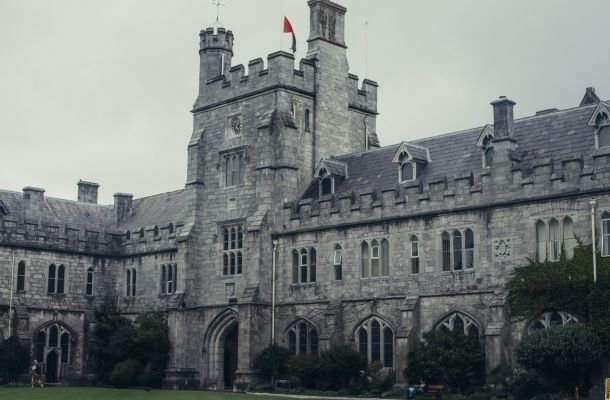Everything About Naples, Florida
History

Naples, Florida, is a city rich in history, tracing its origins back to the late 19th century. The area that is now Naples was first inhabited by the Calusa Indians, known for their advanced society and extensive canal systems. European settlers began to arrive in the region in the 16th century, but it wasn’t until the late 1800s that Naples began to take shape as a community.
In the 1880s, a group of prominent investors, including General John Stuart Williams and Walter N. Haldeman, the publisher of the Louisville Courier-Journal, saw the potential of the area and purchased land to develop a resort town. They were attracted by the region’s mild climate, stunning beaches, and abundant fishing opportunities. The name “Naples” was chosen to evoke the beauty and charm of the Italian city of the same name.
The Naples Town Improvement Company was formed in 1886, and by 1888, the Naples Hotel was opened, attracting visitors from the North. The arrival of the Seaboard Air Line Railroad in 1927 further spurred the growth of Naples, making it more accessible to tourists and new residents.
Throughout the 20th century, Naples continued to develop, with the construction of golf courses, luxury hotels, and residential communities. The city’s population grew rapidly, particularly in the post-World War II era, as retirees and vacationers flocked to the area. Today, Naples is known for its affluent population, world-class shopping, dining, and cultural attractions, as well as its natural beauty.
Geography

Naples is located in southwest Florida, nestled along the Gulf of Mexico. The city covers an area of approximately 14.4 square miles (37.3 square kilometers) and is part of Collier County. Naples is bordered by the Gulf to the west, the Everglades to the east, and the cities of Bonita Springs to the north and Marco Island to the south.
The city’s geography is characterized by its coastal location, with pristine white-sand beaches stretching for miles along the Gulf. The natural landscape includes a mix of barrier islands, estuaries, and mangrove forests, which are home to a diverse array of wildlife, including dolphins, manatees, and various bird species.
Naples is also known for its extensive network of canals and waterways, which provide opportunities for boating, fishing, and water sports. The city is relatively flat, with an elevation of just a few feet above sea level, making it vulnerable to storm surges and flooding during hurricanes.
Geology

The geology of Naples is closely tied to its coastal environment. The region is part of the larger Florida Peninsula, which is primarily composed of limestone bedrock. This limestone was formed over millions of years from the accumulation of coral and shell fragments, creating a porous, carbonate-rich substrate.
The sandy beaches of Naples are the result of the erosion and deposition of these limestone formations, with the fine, white sand being a mix of quartz and shell fragments. The area’s geology also includes extensive wetlands, such as the nearby Everglades, which are formed by the slow movement of water across the flat landscape.
Groundwater is a significant feature of Naples’ geology, with the region sitting atop the Floridan Aquifer, one of the most productive aquifers in the world. This aquifer provides fresh water to much of Florida, including Naples, but also contributes to the city’s susceptibility to sinkholes, which can occur when the limestone bedrock dissolves and creates underground voids.
Neighborhoods

Naples is known for its upscale neighborhoods and planned communities, each offering its own unique character and amenities. Some of the most notable neighborhoods include:
Old Naples
Old Naples is the historic heart of the city, known for its charming, tree-lined streets and beautiful homes. The area is home to many of the city’s original buildings, as well as luxury shops, restaurants, and art galleries along Fifth Avenue South and Third Street South.
Port Royal
Port Royal is one of the most exclusive neighborhoods in Naples, known for its opulent waterfront estates and private docks. The community is home to some of the wealthiest residents in the country and offers stunning views of the Gulf of Mexico.
Pelican Bay
Pelican Bay is a large, master-planned community located north of downtown Naples. It offers a mix of high-rise condominiums, single-family homes, and luxurious resorts. Residents enjoy access to private beaches, golf courses, and extensive walking trails.
Park Shore
Park Shore is a prestigious waterfront community known for its high-rise condominiums and beachfront living. The neighborhood is centered around Venetian Bay and offers a mix of residential and commercial spaces, including the upscale Village Shops on Venetian Bay.
The Moorings
The Moorings is another desirable waterfront community in Naples, offering a mix of single-family homes and condominiums. The neighborhood is known for its private beach access, as well as its proximity to shopping and dining along the Tamiami Trail.
Aqualane Shores
Located between Old Naples and Port Royal, Aqualane Shores is a waterfront community known for its deep-water canals and luxurious homes. The neighborhood offers easy access to the Gulf of Mexico, making it a popular choice for boaters.
Climate

Naples has a tropical savanna climate, characterized by hot, humid summers and warm, dry winters. The city enjoys abundant sunshine throughout the year, with an average of over 300 sunny days annually.
Summers
Summers in Naples are typically hot and humid, with temperatures frequently reaching the low 90s Fahrenheit (around 32-34°C). Afternoon thunderstorms are common during the summer months, as the warm, moist air from the Gulf interacts with the cooler air inland. These storms can bring heavy rain, lightning, and occasional hail.
Winters
Winters in Naples are mild and dry, with temperatures usually ranging from the mid-50s to mid-70s Fahrenheit (12-24°C). The city experiences very little rainfall during the winter months, making it a popular destination for snowbirds and tourists looking to escape the cold weather in the northern states.
Hurricane Season
Naples is vulnerable to hurricanes, particularly during the Atlantic hurricane season, which runs from June to November. The city has experienced several significant storms over the years, including Hurricane Irma in 2017, which caused widespread damage to homes, businesses, and infrastructure.
Demographics

Naples is known for its affluent population, with a median household income that is significantly higher than the national average. The city has a population of approximately 22,000 residents, but this number swells during the winter months as seasonal residents and tourists flock to the area.
Age and Gender
The population of Naples is predominantly older, with a median age of around 66 years. The city’s reputation as a retirement destination is reflected in the high percentage of residents over the age of 65. Naples also has a slightly higher female population than male, which is typical of many retirement communities.
Racial and Ethnic Composition
Naples is a predominantly white community, with over 90% of the population identifying as White or Caucasian. The remaining population is made up of various racial and ethnic groups, including Hispanic, African American, and Asian residents. The city has a small but growing Hispanic population, reflecting broader demographic trends in Florida.
Education and Income
Naples is one of the wealthiest cities in the United States, with a high percentage of residents holding advanced degrees. The city’s strong economy and desirable living conditions attract highly educated professionals, retirees, and business owners. The median household income in Naples is well above the national average, with many residents enjoying a high standard of living.
Economy

Naples boasts a diverse and thriving economy, driven by several key industries, including tourism, real estate, and healthcare. The city’s attractive climate, beautiful beaches, and upscale amenities make it a popular destination for tourists, retirees, and second-home owners, all of which contribute to the local economy.
Tourism
Tourism is a major economic driver in Naples, with visitors drawn to the area’s luxury resorts, world-class shopping, and pristine beaches. The city is known for its high-end shopping districts, such as Fifth Avenue South and the Waterside Shops, which cater to affluent visitors. Golf is also a significant attraction, with Naples boasting more golf holes per capita than any other city in the United States.
Real Estate
Real estate is another critical component of Naples’ economy. The city’s desirable location and upscale amenities make it a hotspot for luxury home buyers, both domestic and international. The real estate market in Naples is known for its high property values, with waterfront properties commanding premium prices.
Healthcare
Healthcare is a growing industry in Naples, driven by the city’s aging population. The area is home to several top-rated hospitals and medical centers, including the NCH Healthcare System and Physicians Regional Healthcare System. These facilities provide a wide range of services, from routine care to specialized treatments, attracting patients from across the region.
Other Industries
In addition to tourism, real estate, and healthcare, Naples also has a strong presence in the finance and professional services sectors. The city’s affluent population and thriving business community create demand for financial services, legal expertise, and other professional services.
Culture

Naples has a rich cultural scene, with a wide range of artistic, musical, and theatrical offerings. The city is home to numerous galleries, museums, and performing arts venues, making it a hub for cultural activity in southwest Florida.
Art and Galleries
Naples is known for its vibrant art scene, with numerous galleries showcasing the work of local, national, and international artists. The city hosts several art festivals throughout the year, including the Naples National Art Festival and the Naples Artcrafters Fine Art & Craft Show. The von Liebig Art Center is a focal point for the arts in Naples, offering exhibitions, classes, and workshops.
Performing Arts
The performing arts are well-represented in Naples, with venues such as the Naples Players at Sugden Community Theatre, Artis—Naples, and the Gulfshore Playhouse offering a diverse array of performances, from Broadway shows to classical music concerts. Artis—Naples is also home to the Naples Philharmonic, one of the leading orchestras in the region.
Museums
Naples is home to several museums that reflect the city’s cultural heritage and artistic interests. The Naples Depot Museum, housed in a historic train station, offers a glimpse into the city’s history and development. The Baker Museum, part of Artis—Naples, features a diverse collection of contemporary and modern art, as well as rotating exhibitions.
Festivals and Events
Naples hosts a variety of festivals and events throughout the year, celebrating everything from art and music to food and wine. The Naples Winter Wine Festival is one of the most prestigious wine auctions in the world, attracting wine enthusiasts and philanthropists from around the globe. Other popular events include the Naples International Film Festival, the Naples Craft Beer Fest, and the Stone Crab Festival.
Colleges and universities

Naples is home to several higher education institutions, providing opportunities for residents and students to pursue academic and professional development.
Florida Gulf Coast University (FGCU)
While not located directly in Naples, Florida Gulf Coast University is a major educational institution serving the Naples area. Located in nearby Fort Myers, FGCU offers a wide range of undergraduate and graduate programs in fields such as business, engineering, education, and health sciences. The university is known for its strong emphasis on sustainability and environmental stewardship.
Hodges University
Hodges University is a private, nonprofit university with a campus in Naples. The university offers a variety of undergraduate and graduate programs, with a focus on adult education and professional studies. Hodges University is known for its flexible scheduling options, including online and hybrid courses, making it accessible to working adults.
Ave Maria University
Ave Maria University is a private Catholic university located about 30 miles east of Naples. The university offers a liberal arts education grounded in the Catholic intellectual tradition. Ave Maria is known for its strong emphasis on theology and philosophy, as well as its commitment to service and community engagement.
Media

Naples is served by a variety of media outlets, including newspapers, television stations, and radio channels, ensuring that residents have access to news, entertainment, and information.
Newspapers
The primary newspaper serving Naples is the Naples Daily News, which covers local, regional, and national news. The newspaper also provides coverage of community events, sports, business, and lifestyle topics. The Naples Florida Weekly is another popular publication, offering news, features, and commentary on local issues.
Television
Naples is part of the Fort Myers-Naples television market, which includes several major network affiliates, such as WINK-TV (CBS), WBBH-TV (NBC), WZVN-TV (ABC), and WFTX-TV (Fox). These stations provide local news, weather, and entertainment programming. Additionally, Naples residents have access to a variety of cable and satellite television options.
Radio
Naples is served by a range of radio stations, offering diverse programming that includes news, talk, music, and sports. Popular stations in the area include WGCU-FM (NPR), WINK-FM (Adult Contemporary), and WRXK-FM (Rock). The city also has several Spanish-language radio stations, reflecting the growing Hispanic population in the region.
Roadways

Naples is well-connected by a network of roadways that provide easy access to other parts of southwest Florida and beyond.
Interstate 75 (I-75)
Interstate 75 is the main highway running through Naples, providing a direct route north to Tampa and south to Miami. The highway also connects Naples to other major cities in Florida, making it a vital transportation corridor for residents, tourists, and businesses.
U.S. Route 41 (Tamiami Trail)
U.S. Route 41, also known as the Tamiami Trail, is another important roadway in Naples. It runs parallel to I-75 but takes a more scenic route through the city, passing through downtown Naples and other key areas. The Tamiami Trail is lined with shops, restaurants, and businesses, making it a bustling commercial thoroughfare.
Collier Boulevard (County Road 951)
Collier Boulevard is a major north-south road in Naples, connecting the city to the eastern parts of Collier County and providing access to residential communities, shopping centers, and recreational areas. The road is also an important route for those traveling to Marco Island.
Golden Gate Parkway
Golden Gate Parkway is a key east-west roadway in Naples, providing access to neighborhoods such as Golden Gate and North Naples. The parkway also connects to I-75, making it an important route for commuters and travelers.
Major Landmarks

Naples is home to several major landmarks that attract visitors and residents alike, offering a mix of natural beauty, cultural significance, and recreational opportunities.
Naples Pier
The Naples Pier is one of the most iconic landmarks in the city. Originally built in 1888 as a freight and passenger dock, the pier has been rebuilt several times and is now a popular spot for fishing, sunset watching, and sightseeing. The pier extends 1,000 feet into the Gulf of Mexico and offers stunning views of the coastline.
The Naples Zoo at Caribbean Gardens
The Naples Zoo at Caribbean Gardens is a historic zoo and botanical garden located in the heart of the city. The zoo is home to a variety of exotic animals, including lions, giraffes, and monkeys, as well as a large collection of tropical plants. The zoo offers educational programs, boat tours, and special events throughout the year.
Fifth Avenue South
Fifth Avenue South is Naples’ premier shopping and dining district, known for its upscale boutiques, art galleries, and restaurants. The street is lined with palm trees and historic buildings, creating a charming and vibrant atmosphere. Fifth Avenue South is also the site of many cultural events, including art fairs, parades, and live music performances.
The Revs Institute
The Revs Institute is a world-renowned automotive museum located in Naples, dedicated to the preservation and study of historically significant automobiles. The museum’s collection includes over 100 rare and classic cars, as well as extensive archives and research materials. The Revs Institute is a must-visit for car enthusiasts and history buffs.
Corkscrew Swamp Sanctuary
Located just outside of Naples, the Corkscrew Swamp Sanctuary is a 13,000-acre preserve that offers a glimpse into Florida’s unique wetland ecosystem. The sanctuary features a 2.25-mile boardwalk that winds through ancient cypress forests, marshes, and prairies, providing visitors with the opportunity to see wildlife such as alligators, otters, and wading birds.
Artis—Naples
Artis—Naples is the cultural hub of the city, offering a wide range of artistic and musical performances, exhibitions, and educational programs. The complex is home to the Naples Philharmonic and The Baker Museum, as well as several theaters and galleries. Artis—Naples hosts events throughout the year, including concerts, ballets, operas, and lectures.
Find us
Tuesday
Wednesday
Thursday
Friday
Saturday
Sunday
10 am – 10 am
10 am – 10 am
10 am – 10 am
10 am – 10 am
10 am – 10 am
10 am – 10 am








